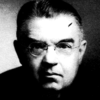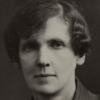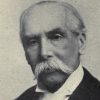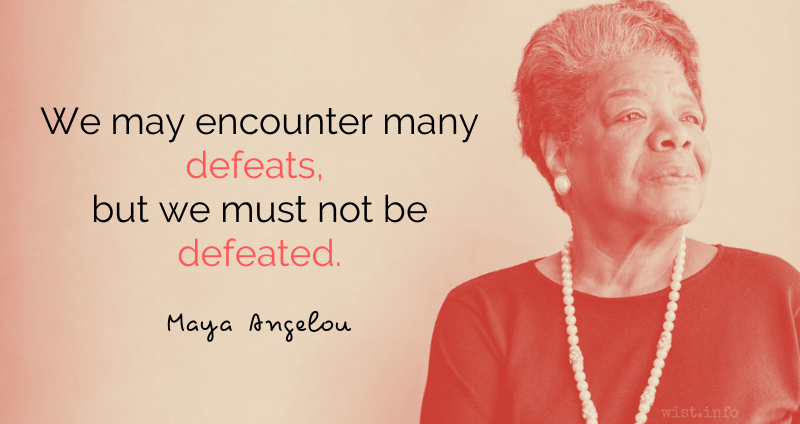A good education is not so much one which prepares a man to succeed in the world, as one which enables him to sustain a failure.
Bernard Iddings Bell (1886-1958) American author, Episcopal priest, chaplain, academic, lecturer
“Know How vs. Know Why,” Life Magazine (1950-10-16)
(Source)
Quotations about:
recovery
Note not all quotations have been tagged, so Search may find additional quotes on this topic.
When you live with a joyful sense of purpose, when you infuse your life with a greater purpose beyond your individual self, every aspect of your karma can become a brilliant facet of your mission. You can transform sorrow and adversity of any sort into joy, stability, health, and prosperity. By changing poison into medicine and accomplishing your inner revolution, you can use every experience of karma to encourage others who suffer from the same problems that you overcame.
You can become an ambassador of hope, an essential and radiant treasure of humanity, in which you recognize that all who have ever lived are members of your extended family.
As you continue to spread light in this way, actively doing good in the world, that energy will come back to you in abundant positivity. When you refuse to perpetuate any bad that has been done to you, you can free yourself from the chains of negativity.
Tina Turner (1939-2023) American singer, songwriter, actress [b. Anna Mae Bullock]
Happiness Becomes You, ch. 8 (2020)
(Source)
It isn’t for the moment you are struck that you need courage, but for the long uphill climb back to sanity and faith and security.
Anne Morrow Lindbergh (1906-2001) American writer, pilot
Hour of Gold, Hour of Lead: Diaries and Letters of Anne Morrow Lindbergh, 27 Sep 1932 (1973)
(Source)
Today the Somme is a peaceful but sullen place, unforgetting and unforgiving. The people, who work largely at raising vegetables and grains, are “correct” but not friendly. To wander now over the fields destined to extrude their rusty metal fragments for centuries is to appreciate in the most intimate way the permanent reverberations of July, 1916. When the air is damp you can smell rusted iron everywhere, even though you only see wheat and barley.
Paul Fussell (1924-2012) American cultural and literary historian, author, academic
The Great War and Modern Memory, ch. 2 “The Troglodyte World” (1975)
(Source)
Genius is what you do with the mistakes.
Michael Moriarty (b. 1941) American-Canadian actor, musician
In Amy Wallace, “The Survivor,” New Yorker (26 Jan 2004)
(Source)
Referring to his work with film producer Larry Cohen. Full quote: "It was skin-of-your-teeth filmmaking. Larry tends occasionally not to look ahead. But genius is what you do with the mistakes, and nobody was better with mistakes than Larry Cohen."
The most beautiful people we have known are those who have known defeat, known suffering, known struggle, known loss, and have found their way out of the depths. These persons have an appreciation, a sensitivity, and an understanding of life that fills them with compassion, gentleness, and a deep loving concern. Beautiful people do not just happen.
Elisabeth Kübler-Ross (1926-2004) Swiss-American psychiatrist, author
Death: The Final Stage of Growth (1975)
(Source)
For there is no gardening without humility, an assiduous willingness to learn, and a cheerful readiness to confess you were mistaken. Nature is continually sending even its oldest scholars to the bottom of the class for some egregious blunder. But, by the due exercise of patience and diligence, they may work their way to the top again.
Alfred Austin (1835-1913) English poet, UK Poet Laureate (1986-1913)
The Garden That I Love, “April 30th” (1894)
(Source)
Things are never so bad that they can’t get worse. But they’re sometimes so bad they can’t get better.
Mignon McLaughlin (1913-1983) American journalist and author
The Second Neurotic’s Notebook, ch. 5 (1966)
(Source)
The newspapers still talk about glory but the average man, thank God, has got rid of that illusion. It is a damned bore, with a stalemate as the most probable outcome, but one has to see it through, and see it through with the knowledge that whichever side wins, civilisation in Europe will be pipped for the next 30 years. Don’t indulge in Romance here, Malcolm, or suppose that an era of jolly little nationalities is dawning. We shall be much too much occupied with pestilence and poverty to reconstruct.
E. M. Forster (1879-1970) English novelist, essayist, critic, librettist [Edward Morgan Forster]
Letter to Malcolm Darling (6 Nov 1914)
(Source)
Tolerance is a very dull virtue. It is boring. Unlike love, it has always had a bad press. It is negative. It merely means putting up with people, being able to stand things. No one has ever written an ode to tolerance, or raised a statue to her. Yet this is the quality which will be most needed after the war. This is the sound state of mind which we are looking for. This is the only force which will enable different races and classes and interests to settle down together to the work of reconstruction.
E. M. Forster (1879-1970) English novelist, essayist, critic, librettist [Edward Morgan Forster]
“The Unsung Virtue of Tolerance,” radio broadcast (Jul 1941)
(Source)
Published as "Tolerance," Two Cheers for Democracy (1951)
There is, I hope, a thesis in my work: we may encounter many defeats, but we must not be defeated.
Maya Angelou (1928-2014) American poet, memoirist, activist [b. Marguerite Ann Johnson]
“The Art of Fiction,” Paris Review, #116, Interview with George Plimpton (1990)
(Source)
A champion is someone who gets up when he can’t.
William Harrison "Jack" Dempsey (1895-1983) American professional boxer ("Kid Blackie," "The Manassa Mauler")
(Attributed)
(Source)
Comment after his fight with Luis Ángel Firpo (14 Sep 1923).
He that lacks time to mourn, lacks time to mend.
Eternity mourns that. ‘Tis an ill cure
For life’s worst ills, to have no time to feel them.
Where sorrow’s held intrusive and turned out,
There wisdom will not enter, nor true power,
Nor aught that dignifies humanity.Henry Taylor (1800-1886) English dramatist, poet, bureaucrat, man of letters
Philip Van Artevelde, Part 1, Act 1, sc. 5 (1834)
(Source)
Character is much easier kept than recovered.
Thomas Paine (1737-1809) American political philosopher and writer
The American Crisis, #13 (19 Apr 1783)
(Source)
If you live long enough, you’ll make mistakes. But if you learn from them, you’ll be a better person. It’s how you handle adversity, not how it affects you. The main thing is never quit, never quit, never quit.
Every great improvement has come after repeated failures. Virtually nothing comes out right the first time. Failures, repeated failures, are finger posts on the road to achievement. One fails forward toward success.
Charles F. Kettering (1876-1958) American inventor, engineer, researcher, businessman
(Attributed)
(Source)
Living well is the best revenge.
George Herbert (1593-1633) Welsh priest, orator, poet.
Jacula Prudentum, or Outlandish Proverbs, Sentences, &c. (compiler), # 524 (1640 ed.)
(Source)
Perhaps a variant of John Lyly (1579): "The greatest harm that you can do unto the envious, is to do well."
Cities may be rebuilt, and a People reduced to Poverty, may acquire fresh Property: but a Constitution of Government once changed from Freedom, can never be restored. Liberty, once lost, is lost forever.
The greatest test of courage is to bear defeat without losing heart.
Robert Green Ingersoll (1833-1899) American lawyer, agnostic, orator
“The Declaration of Independence” (1876)
(Source)
Do not be too timid and squeamish about your actions. All life is an experiment. The more experiments you make the better. What if they are a little coarse, and you may get your coat soiled or torn? What if you do fail, and get fairly rolled in the dirt once or twice. Up again, you shall never be so afraid of a tumble.
Our greatest glory is, not in never falling, but in rising every time we fall.
Oliver Goldsmith (1730-1774) Irish poet, playwright, novelist
The Citizen of the World: or, Letters from a Chinese Philosopher, Residing in London, to His Friends in the East, Letter 7 (1762)
(Source)
Ostensibly from a Chinese visitor to London, Lien Chi Altangi, the letters were written by Goldsmith and published in The Public Ledger in 1760-61. Letter 22 has the similar "True magnanimity consists not in NEVER falling, but in RISING every time we fall."
The saying is often attributed to Confucius (Letter 7's introduction implied that they were), but is not found in Confucius' work. The saying is also sometimes attributed to Ralph Waldo Emerson. See here for more discussion.
























